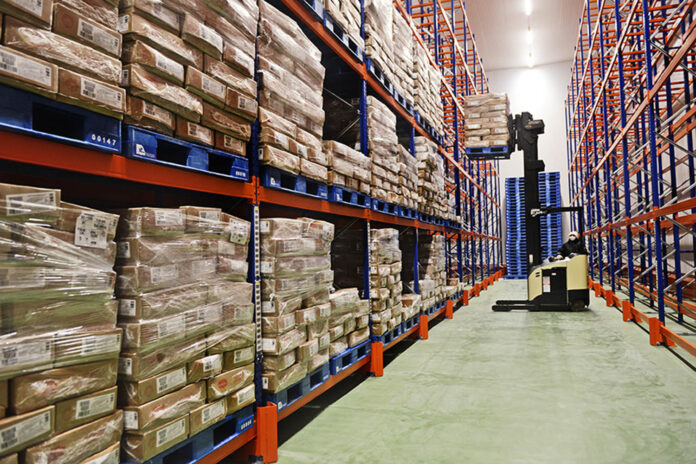-
The Cold Chain Association of the Philippines remains optimistic about industry opportunities in 2022, citing population growth and election spending as driving factors
-
The COVID-19 pandemic, African Swine Fever and supply chain disruptions remain major challenges
-
Power supply could be a looming issue during the dry season
-
There are no clear indications of a forthcoming solution to address the ASF issue
-
This means the meat supply situation will remain tight and would still have to be augmented by imports
-
Amendments to the Public Service Act may attract foreign investors, creating opportunities for the food processing sector
-
Capacity expansion projects are ongoing, notably in the National Capital Region and Regions 3, 4A, 6 and 7
The Cold Chain Association of the Philippines (CCAP) remains optimistic about industry growth this year even as the sector faces a host of challenges, including the COVID-19 pandemic and supply chain disruptions.
The optimism stems largely from traditional factors such as population growth in addition to expected higher spending due to the May national elections, CCAP president Anthony Dizon told PortCalls in an email.
“We are also hopeful that the economic forecasts of 7% growth (in 2022) will be achievable, and that the impact can be made to cascade to the majority of the population,” Dizon said.
He noted, however, that the COVID-19 pandemic, African Swine Fever (ASF) and supply chain disruptions will remain major challenges. “From the looks of it, the [COVID-19] situation will likely persist in 2022 and maybe even beyond,” he said.
“The mitigating factor could be that in NCR [National Capital Region] and the other urbanized regions of the country, the vaccination level continues to improve, and the overall impact of the virus may diminish somewhat, allowing for economic activity to assume a certain level of normalcy.”
He said there are no clear indications of a forthcoming solution to address the ASF issue, which means the supply situation will still have to be augmented by imports.
Dizon said that fortunately, the avian flu situation in certain parts of Europe seems to have abated, which may allow supply and prices of mechanically deboned meat to normalize.
At the same time, the industry must still contend with supply chain disruptions and consequent delays in shipping schedules, which Dizon said could create aberrations in operations planning in the cold chain sector. Since 2020, the COVID-19 pandemic has disrupted global trade and given rise to various shipping and supply chain issues.
The power supply issue also looms large this year, Dizon said. The National Grid Corporation of the Philippines recently warned of thin energy supply during the dry season due to high demand.
“Our industry interprets this to signify an increase in operating costs, the extent of which we can only speculate on at the moment,” the CCAP president noted.
Since this is an election year, he said “there will be a tendency for investors to hedge their bets on expansion plans and wait for prospective directional shifts depending on who wins the election.”
Positive impetus for expansion
The full enactment of amendments to the Public Service Act (PSA) may open the door to foreign investors who have been watching from the sidelines for years now, and may actually create opportunities for the food processing sector, Dizon said.
The PSA bill, which will allow full foreign ownership of public services that will no longer be defined as public utility, has been approved on third and final reading by the Senate last December and is now at the bicameral conference committee.
READ: Senate oks bill allowing 100% foreign ownership of public services
Aside from the PSA bill, Dizon said the strengthening of the Ease of Doing Business Act through the implementation of the Citizen’s Charter of government agencies “may create a positive impetus to industry expansion.”
The industry is not wanting in capacity expansion projects with ongoing projects in NCR and Regions 3, 4A, 6 and 7, he said, and there are even reports of the entry of entirely new industry participants.
“As we look forward to 2022 and beyond, we are hopeful that our policy makers can come up with a wholistic strategy that will address the concerns of all stakeholders and enable a concerted effort at uplifting the contribution of the agribusiness sector to the overall economic performance of the country,” Dizon said.
He noted cold chain facilities are not heavily utilized at the moment as the first quarter is typically a slow period with inventories having been depleted during the holiday rush.
But the industry is looking forward to the arrival of import shipments under the minimum access volume (MAV) Plus program of the Department of Agriculture ostensibly delayed due to the international shipping issues.
READ: EO signed raising pork import MAV to 254,210 MT
Executive Order No. 133, issued in May 2021, raised the MAV for pork imports to 254,210 metric tons (MT) from 54,210 MT “to quell the existing shortage, decrease retail prices, and stabilize inflation” brought by the ASF outbreak that started in 2019. The order is expected to bring additional business to the cold storage sector.
READ: PH to import 60,000 MT of fish to plug shortage
Asked if the government’s recent decision to import 60,000 metric tons of small pelagic fish to plug a projected fish supply shortfall in the first quarter of 2022 would have an impact on the industry, Dizon said “the industry is capable and ready to provide the support services for such imports as they materialize.” — Roumina Pablo





